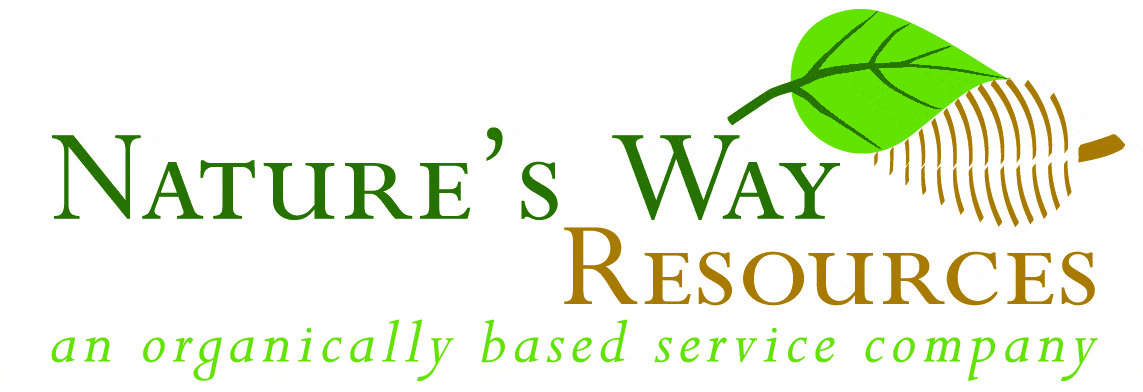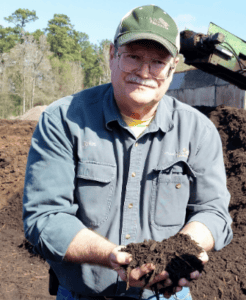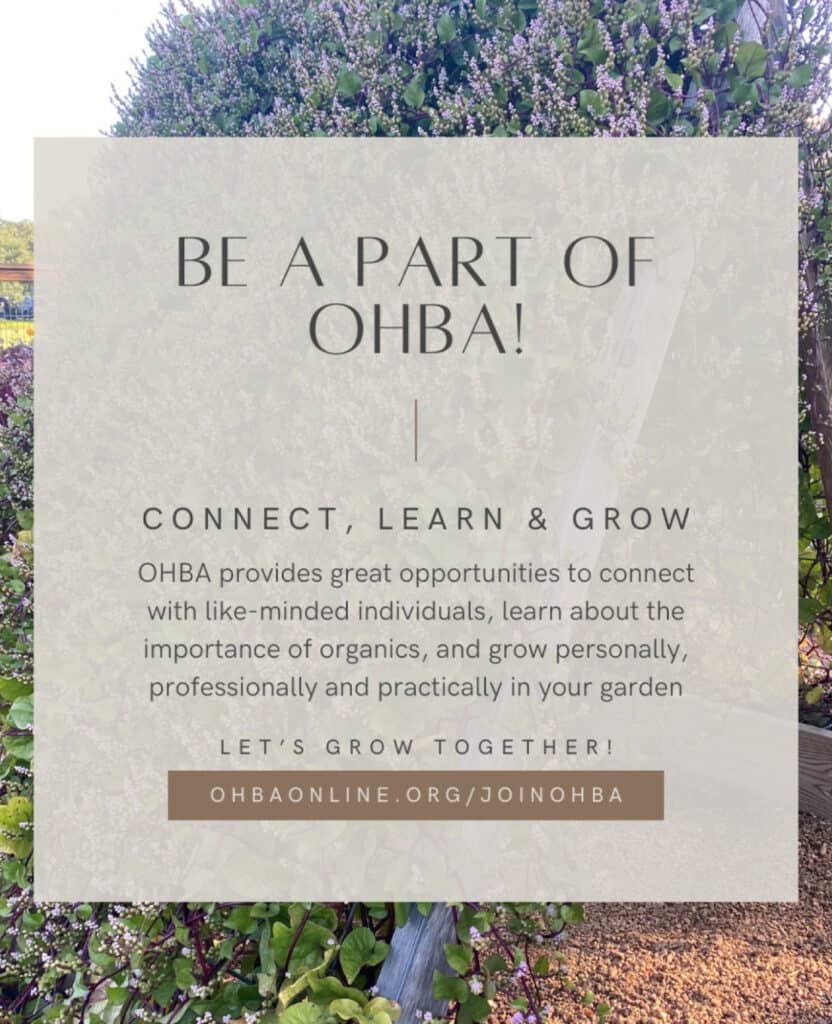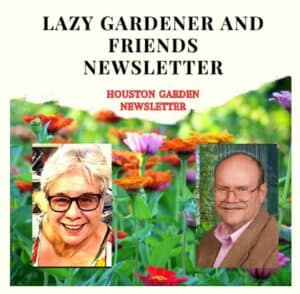 Nature’s Way Resources is proud to produce & email you this free weekly newsletter. We have no ads, but sponsors do graciously help support this project as a public service. Please note their names below & show your gratitude for this free service by patronizing their businesses! To become a sponsor, call (936) 273-1200
Nature’s Way Resources is proud to produce & email you this free weekly newsletter. We have no ads, but sponsors do graciously help support this project as a public service. Please note their names below & show your gratitude for this free service by patronizing their businesses! To become a sponsor, call (936) 273-1200
Nature’s Way Resources owner John Ferguson, “The Lazy Gardener” Brenda Beust Smith and Pablo Hernandez welcome your feedback and are so grateful to the many horticulturists who contribute their expertise
Click here to join our email list
CLICK HERE for PDFs OF PAST LG&F NEWSLETTERS

Among Trees for Houston giveaways at upcoming events will be (l to r) American Beautyberry, Buttonbush, Crepe Myrtle (Note:this is my ‘Peppermint Lace,’ don’t know free crepe colors),and three phases of American Sycamore tree.
SIGN UP NOW FOR TREES FOR HOUSTON PLANT GIVEAWAYS!
BY BRENDA BEUST SMITH
FEBRUARY IS PRIME TIME for planting trees, and Trees for Houston is giving away some dillies this year at the upcoming Sat., Feb, 1 at REGISTER, Don’t go if you haven’t registered. If this one is full, sign up NOW for your choice of offered trees: (pick any two): crepe myrtle, buttonbush, American beauty berry and/or American sycamore. Join Trees For Houston Office, 1911 W 34th St. Houston, TX 77018, to get future tree giveaway notices. Don’t have to live “in” Houston proper to join.
SYMPATHIES to folks bemoaning beautiful lawns that now look dead-dead.Have St. Augustine grass? This is normal as are many trees, shrubs and flowers. Nature allows top growth to die so plants allot all energies on keeping roots alive. Give it a chance to return in late Feb or March!
LET THIS BE THE YEAR you take advantage of all free official advice available from our specialty plant societies. If links don’t work, please let me know! (lazygardenerbrenda@gmail.com) (Websites are not linked to web!)
- AZALEA – River Oaks Garden Club Azalea Trail wtill be in 2026. riveroaksgc.org.
- BEGONIA – Astros Branch, Houston Begonia Society/ begoniahouston.org
- BONSAI – Houston Bonsai Society houstonbonsaisociety.org
- BROMELIAD – Bromeliad Society/Houston bromeliadsocietyhouston.org/
- BULBS – Garden Club of Houston Bulb & Plant Mart. October 2025 gchouston.org/
- CACTUS & SUCCULENTS – Houston Cactus & Succulent Society. hcsstex.org/
- CAMELLIAS – Coushatta Camellia Society. americancamellias.com/clubs-societies
- CHRYSANTHEMUMS – Greater Houston Chrysanthemum Society mums.org/texas/
- DAYLILIES – Houston Hemerocallis Society. ofts.com/hhs/ (Surrounding areas: daylily.org, click on “Regional Activities”
- FERNS – Gulf Coast Fern Society tgcfernsoc.org
- GARDENING – Urban Harvest urbanharvest.org
- HIBISCUS – Lone Star Chapter. lonestarahs.org
- MASTER GARDENERS txmg.org/contacts/by-county
- NATIVE PLANTS – Native Plant Society/Houston. npsot.org/houston
- OLEANDERS – International Oleander Society. oleander.org (based in Galveston!)
- ORCHIDS – Houston Orchid Society. houstonorchidsociety.org
- PALMS Palm Society of South Texas facebook.com/PalmSocietyOfSouthTexasPsst
- PLUMERIA – The Plumeria Society of America (based in Houston!) theplumeriasociety.org
- ROSES:
- HOUSTON ROSE SOCIETY houstonrose.org
- TEXAS ROSE RUSTLERS texasroserustlers.com
- TREES – Trees of Houston treesforhouston.org
These are all groups that I have taken advantage of our calendar below. Some groups prefer to stay small. Many, but not all, of these also have open Facebook pages. Just do a “__(plant name)__GARDEN CLUB” search.
LOOKING FOR A “NEIGHBORHOOD GARDEN CLUB”? Many, but not all, may be members of the HOUSTON FEDERATION OF GARDEN CLUBS
Your plant group not listed? If open to public (some aren’t), send info above to me at lazygardenerbrenda@gmail.com


- THE LITTLE PLANT THAT COULD. Sometimes garden rewards are really tiny but still wonderful. Last October a small plant appeared out of nowhere in a pot on JOSANNA BRATTIS SMITH‘s porch. She had previously grown tomatoes in the pot so decided maybe it was from an earlier, unpicked tomato that had fallen down into the pot. Curious, she began watering it. Lo & behold, tomatoes risen from the dead!
3 CHEERS FOR THE CEC!
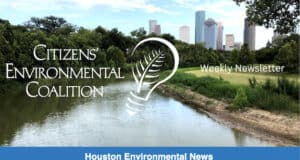 Today we pay tribute to, and encourage you to join, Houston’s Citizens Environmental Coalition. The latest newsletter was packed with great advice (partial below) for our gardens right now. First, tho, for 50+ years, the Citizens’ Environmental Coalition (CEC) has successfully fostered dialogue, education, and collaboration on environmental issues in the Greater Houston / Gulf Coast region. CEC is a 501(c)3 nonprofit organization; donations are tax deductible and sponsors are welcome through the link above. Now, about that advice for our yards and gardens:
Today we pay tribute to, and encourage you to join, Houston’s Citizens Environmental Coalition. The latest newsletter was packed with great advice (partial below) for our gardens right now. First, tho, for 50+ years, the Citizens’ Environmental Coalition (CEC) has successfully fostered dialogue, education, and collaboration on environmental issues in the Greater Houston / Gulf Coast region. CEC is a 501(c)3 nonprofit organization; donations are tax deductible and sponsors are welcome through the link above. Now, about that advice for our yards and gardens:
CEC’s Post-Freeze Recovery Tips
(from Citizens Environmental Coalition Monthly Newsletter)
- Assess Damage: Wait until temperatures rise before inspecting garden. Frost-damaged plants often look wilted or discolored, but not all are beyond saving.
- Gently check for pliable stems and green tissue under the bark.
- Leave damaged foliage in place until the threat of further frost has passed, as it can provide temporary insulation.
- Prune Carefully: Remove dead or mushy plant material once the freeze is over. Avoid cutting back too much. Some plants may regrow from their roots.
- Hydrate Wisely: Water gardens deeply but avoid overwatering. Frozen soil can restrict water absorption, and plants need time to recover their root function.
- Fertilize Later: Avoid fertilizing immediately after a freeze. Plants need time to stabilize before receiving nutrients.
Preparing for Future Freezes
- Mulch and Cover: Apply a thick layer of mulch around the base of plants to insulate roots. Use frost cloths, burlap, or even old sheets to cover vulnerable plants during cold spells.
- Choose Hardy Plants: Incorporate native or cold-hardy plants that are better adapted to local conditions.
- Invest in Protection: Install windbreaks, cloches, or cold frames to shield your garden from icy winds and frost.
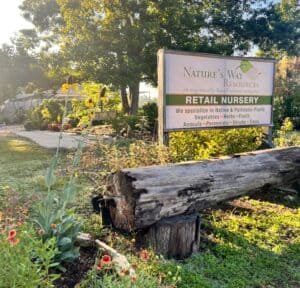 ATTN. GARDEN/PLANT GROUPS — In wake of Hurricane Beryl, Nature’s Way Resources offers free guided tours of NWR’s extensive nursery/soil/mulch facilities for garden clubs, plant societies and other plant-oriented, organized groups. As usual, NWR’s now-expanded meeting site is free to above groups. Reservations a must for both.
ATTN. GARDEN/PLANT GROUPS — In wake of Hurricane Beryl, Nature’s Way Resources offers free guided tours of NWR’s extensive nursery/soil/mulch facilities for garden clubs, plant societies and other plant-oriented, organized groups. As usual, NWR’s now-expanded meeting site is free to above groups. Reservations a must for both.
Brenda Beust Smith’s column is based on her 40+ years as the Houston Chronicle’s “Lazy Gardener” column — lazygardenerbrenda@gmail.com Brenda’s column focuses ONLY on the Greater Houston Area
John’s Corner
NEWS FROM THE WONDERFUL WORLD
OF SOIL AND PLANTS # 315
Subject: Artificial Fertilizers Sewage Sludge and EPA
The journal Nature (2025) had a research paper on the damage to the environment by artificial fertilizers. The two-year study was done at the Park Grass Experiment in England that has been studying the difference in organic and artificial fertilizers on plant growth since 1856!
They found the artificial enrichment of the soil by chemical fertilizers caused a large decline in species diversity of both flowering plants and pollinators, as compared to organic fertilization.
They found that using chemical fertilizers favored fast growing plant species of grass at the expense of flowering legumes and forbs. Note: Many of the plants we call weeds are an example of a fast-growing species.
Other studies have found that the manufacturer of these fertilizers themselves is a major source of carbon dioxide emissions contributing to 1.4% of the world’s total. We have known for some time that use of artificial fertilizers leads to the destruction of organic matter in the soil, additionally causing a major release of carbon dioxide and other greenhouse gases. The manufacturer of these fertilizers and the destruction of organic matter makes them a leading cause of climate change (global warming).
As these environmentally dangerous fertilizers are used, they also pollute our bayous, lakes and streams and eventually cause dead zones in the oceans.
God’s word tells us that we are to be stewards of his creation which means do no harm. By using organic fertilizers, a gardener gets better results, less problems, lower total costs, and is part of the climate solution rather than part of the problem.
We have talked about the dangers of sewage sludge and biosolid compost made from sewage sludge as fertilizers for our yards and gardens, on many occasions.
About 10 years ago I did a book review (repeated below) on how the corruption in the EPA went after a whistle blower who exposed the dangers of sewage sludge. The book covered the story of how governments and industry along with the media (had to protect their advertisers) on two continents went after the two scientists who wanted to help people and tell the truth. After years of legal battles, both scientists were found innocent of fraud, to be telling the truth and trying to protect people. However, their reputations, careers, and finances were ruined.
To date there have been dozens of studies if not hundreds showing the dangers of exposure to sewage sludge and the EPA has done nothing, hence its nickname of the Enhanced Profit Agency.
With the recent changes of our government and a new administration with a mandate to root out corruption and punish government officials on the take from industry, suddenly, the EPA releases a new report on January 17, 2025, that states sewage sludge is dangerous to your health!
For gardeners be careful when purchasing soil amendments, compost, and soil blends, as many of these products contain sewage sludge and the companies do not have to tell you. They are more commonly found in the lower priced products as the companies are trying to get rid of this toxic material and they believe our gardens are the ideal dumping ground.
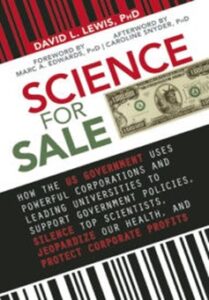 Science For Sale: How the US Government Uses Powerful Corporations and Leading Universities to Support Government Policies, Silence Top Scientists, Jeopardize Our Health, and Protect Corporate Profits, by David Lewis, PhD., Skyhorse Publishing, 2014, ISBN: 978-1-62636-071-6
Science For Sale: How the US Government Uses Powerful Corporations and Leading Universities to Support Government Policies, Silence Top Scientists, Jeopardize Our Health, and Protect Corporate Profits, by David Lewis, PhD., Skyhorse Publishing, 2014, ISBN: 978-1-62636-071-6
Note: All proceeds from this book go to the National Whistle Blower’s Center (www.whistleblowers.org)
David Lewis was a research microbiologist at the EPA’s Office of Research and Development and at the University of Georgia for over 30 years. He became famous for his work showing that improper sterilizing of dental equipment was transferring HIV, hepatitis and other diseases from patient to patient. He then discovered how (FDA approved) improper sterilization methods allowed transfer of diseases in endoscopy tests resulting in thousands of deaths.
Later he became involved with studying the land application of sewage sludge (biosolids). When he discovered how the safety studies had been falsified, how toxic and dangerous the sewage sludge really was, he started reporting on the health problems it causes. Government and Industry came after him to shut him up from telling the truth.
For additional information on the dangers of sewage sludge see: www.sludgefacts.org or www.sludgenews.org
In addition to the above if you want to learn more see our website for more information. https://www.natureswayresources.com/biosolids/ or see the Lazy Gardener and Friends Newsletter Issues 201-204.
SPONSORSHIP
If you are interested in becoming a sponsor, please contact us at 936-273-1200 or send an e-mail to: lazygardenerandfriends@gmail.com
ABOUT US
BRENDA BEUST SMITH WE KNOW HER BEST AS THE LAZY GARDENER . . . but Brenda Beust Smith is also:
- a national award-winning writer & editor
- a nationally-published writer & photographer
- a national horticultural speaker
- a former Houston Chronicle reporter
When the Chronicle discontinued Brenda’s 45-year-old Lazy Gardener” print column — started in the early ’70s as a fun side-project to reporting, it then ranked as the longestrunning, continuously-published local newspaper column in the Greater Houston area. The name, she says, is not just fun, it’s true.
Brenda’s gradual sideways step from reporter into gardening writing led first to an 18-year series of when-to-do-what Lazy Gardener Calendars, then to her Lazy Gardener’s Guide book which morphed into her Lazy Gardener’s Guide on CD, which she now emails free upon request.
Brenda became a Harris County Master Gardener and, over the years, served on theboards of many Greater Houston area horticulture organizations. She hosted local radio and TV shows, most notably a 10+-year Lazy Gardener specialty shows on HoustonPBS (Ch. 8) and her call-in “EcoGardening” show on KPFT-FM.
For over three decades, Brenda served as Assistant Production Manager of the GARDEN CLUB OF AMERICA’S “BULLETIN” magazine. Although still an active broad-based freelance writer, Brenda’s main focus now is THE LAZY GARDENER & FRIENDS HOUSTON GARDEN NEWSLETTER with John Ferguson and Pablo Hernandez of Nature’s Way Resources.
A native of New Orleans and graduate of St. Agnes Academy and the University of Houston, Brenda lives in Humble, TX, and is married to the retired Aldine High School Coach Bill Smith. They have one son, Blake.
Regarding this newsletter, Brenda is the lead writer, originator of it and the daily inspiration for it. We so appreciate the way she has made gardening such a fun way to celebrate life together for such a long time.
About her column, Brenda says: “I don’t consider myself a ‘garden writer.” I started out 50+ years ago as a very lazy “gardening reporter.” I still feel that way today. I hope my columns inspire/help newcomers, but I do not write to them. I write to very experienced gardeners who want to expand their horizons.
JOHN FERGUSON
John is a native Houstonian and has over 35 years of business experience. He owns Nature’s Way Resources, a composting company that specializes in high quality compost, mulch, and soil mixes. He holds a MS degree in Physics and Geology and is a licensed Soil Scientist in Texas.
John has won many awards in horticulture and environmental issues. For years he represented the composting industry on the Houston-Galveston Area Council for solid waste. His personal garden has been featured in several horticultural books and “Better Homes and Gardens” magazine. His business has been recognized in the Wall Street Journal for the quality and value of their products. He is a member of the Physics Honor Society and many other professional societies. John is the co-author of the book Organic Management for the Professional.
For this newsletter, John contributes articles regularly and is responsible for publishing it.
PABLO HERNANDEZ Pablo Hernandez is the special projects coordinator for Nature’s Way Resources. His realm of responsibilities include: serving as a webmaster, IT support, technical problem solving/troubleshooting, metrics management and quality control. Pablo helps this newsletter happen from a technical support standpoint.
Download the Newsletter with Our Events Calendar Below!
